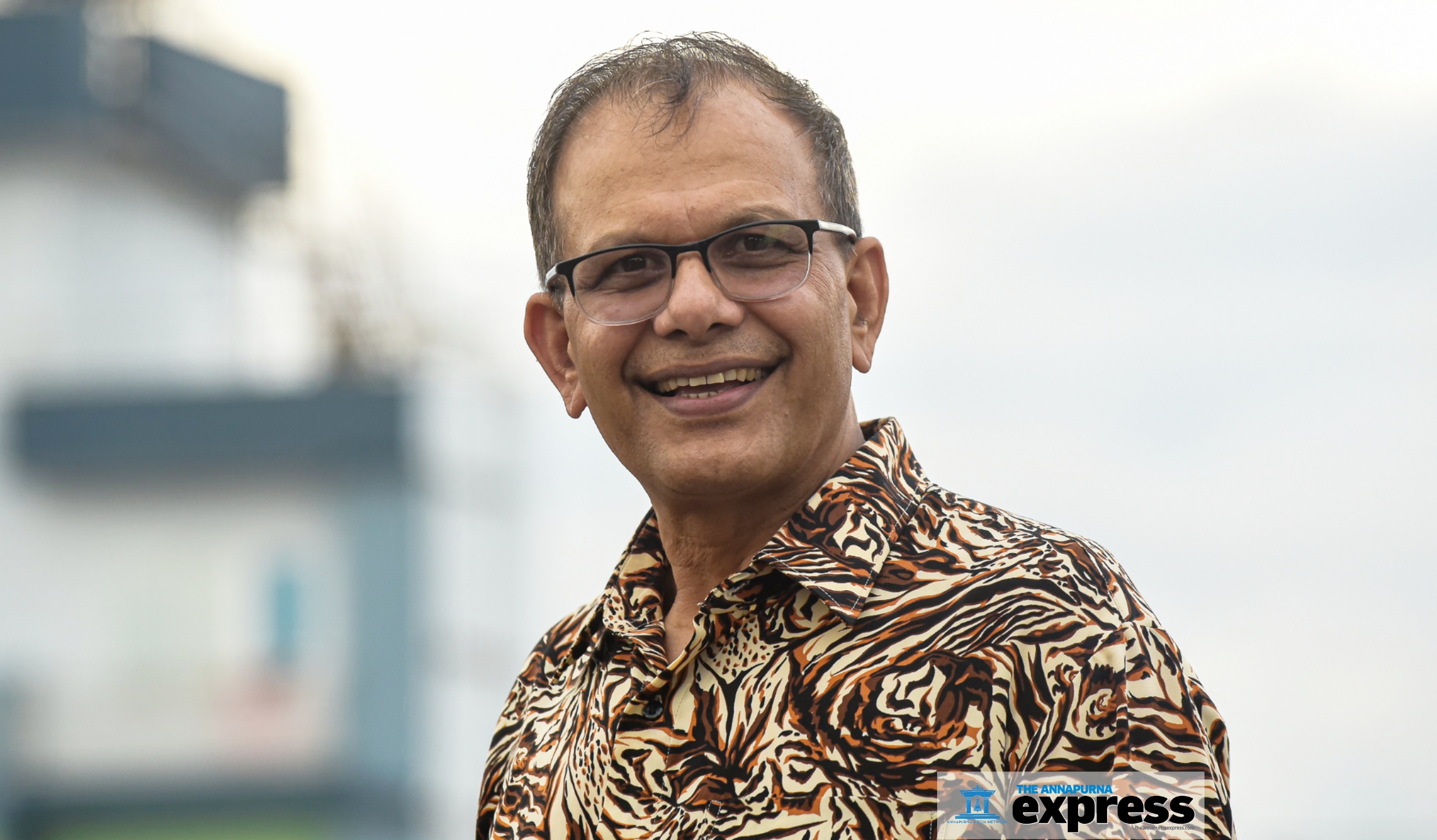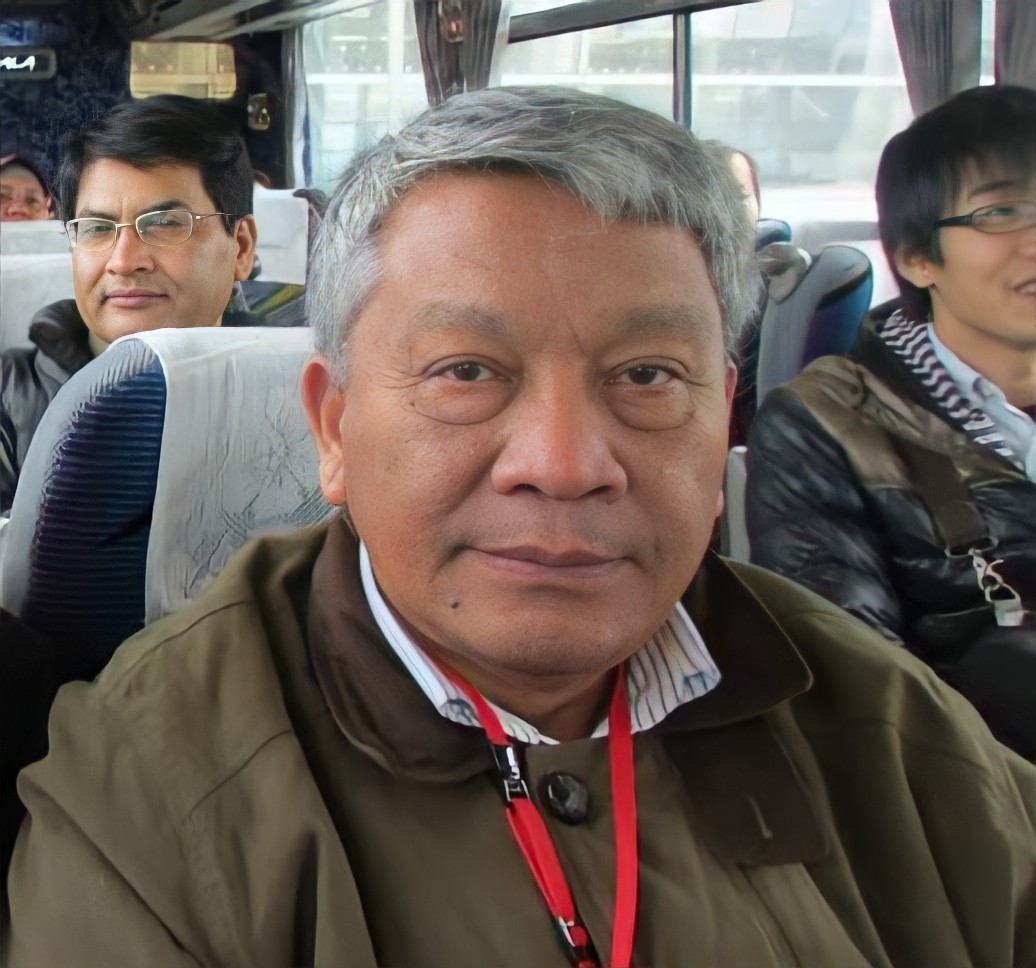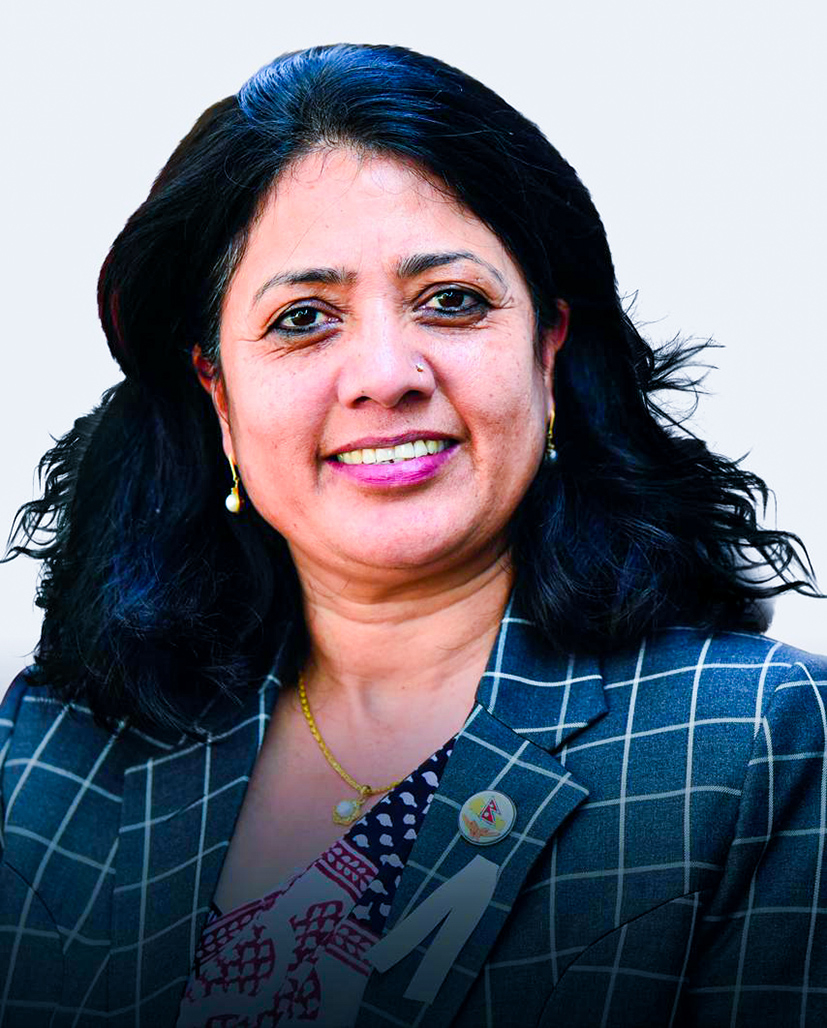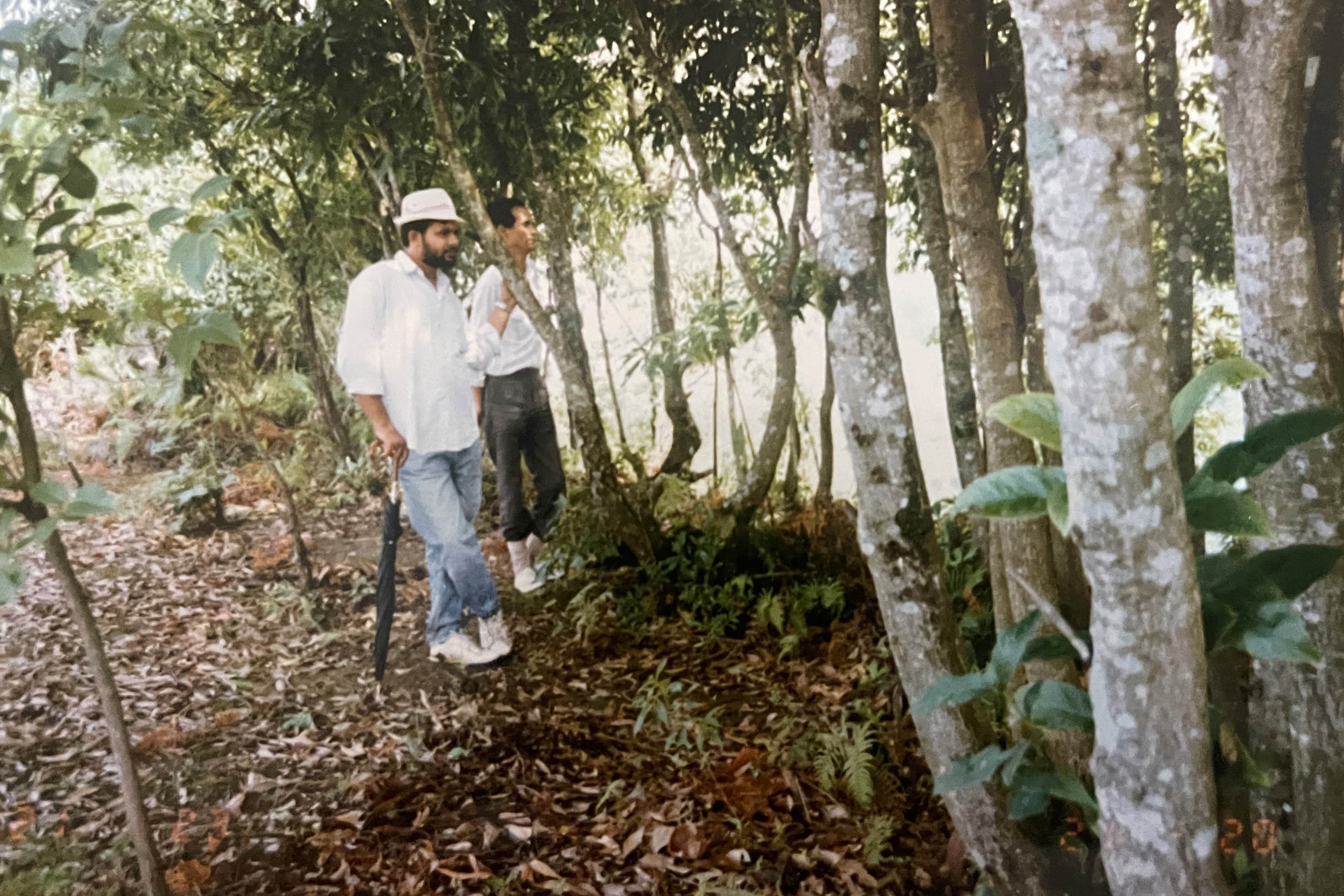Bharat Pokharel: Forester who championed local communities

Quick facts
Born on 5 June 1961 in Khotang
Went to Sarada High School, Khotang
Graduated from Mahendra Morang College, Morang; Post-grad from Indian Forest College, Dehradun, India
PhD from School of Development Studies, University of East Anglia, England
Joined forest department in 1985 and worked in policy-making of community forest
Husband of Radhika Regmi
Father to Yushu Pokharel and Anuka Pokharel

My father was a teacher and a part-time politician in Khotang. Still, agriculture was the main source of our family’s income. I got involved in domestic chores like cattle-grazing and collecting firewood from an early age. Back then I went to a village school and was among the more hardworking students in my class.
After completing my school-level education in Khotang, for further studies I came to Biratnagar, where I later completed my ISc and BSc from Mahendra Morang College. Because of my upbringing and schooling in the village, where a significant portion of my childhood was spent in farms and forests, I was drawn to the study of forestry. Perhaps it also had something to do with me being born on the ‘World Environment Day’.
Back then, Nepal did not have a master’s program in forestry. So I secured a government scholarship to go to Dehradun, India, to pursue MSc in forestry.
The forestry curriculum there was a mix of semi-military, technical, law, and administration courses. Forest officers were treated as custodians of the forest. We had to learn how to use a gun, swim, and ride a horse besides taking courses on forest law and administration.
The courses essentially portrayed the communities living close to forests as enemies, something I didn’t agree with. I saw this as a reflection of the colonial mindset; there was a deep divide in the ideas of forest I learned as a young boy in the village and the one I was being taught at college.
After completing my MSc, I returned to Nepal in 1985 and got a job in the forest department after passing the Public Service Commission test. As in India, Nepal too had a colonial mindset on the use of forest resources. A few elite families controlled forests and their resources, while commoners, particularly indigenous people living close to forest areas, were treated like enemies.
We were close to the historic 1990 revolution at the time. The voice against the Panchayat regime was intensifying. The chorus for forest policy reforms was also getting louder. Internationally, too, policy reforms were being introduced on the use of natural resources. People started advocating for the rights of the local community on local resources. Naturally, this movement caught my fancy.
I was among those few government forest officers who were in support of people-centric forest laws. By contrast, the majority of the officers were in favor of wielding administrative powers over forest resources.
Bharat Pokharel (left) inspecting a newly handed-over community forest in Pyuthan, in 1993.
In 1990, we succeeded in introducing a forest policy whereby 60 percent of forests near human settlements would be handed over to local communities. Based on this policy, Nepal endorsed the Forest Act in 1993. By this time, many forest officers had realized the importance of community participation in forest conservation, and that the forest department should act as a facilitator, not an administrator. Without the partnership with local communities, it was impossible to conserve forests and their resources. And then, in 1995, the Forest Regulation was introduced.
I was at the time working as the District Forest Officer (DFO) in Dhankuta. The people there loved me, for I was their voice. As the multi-party system had been restored by then, there were several young members of parliament who supported the cause and concern of local communities on the use of forest resources. And these MPs were the ones who formulated laws.
I was considered a revolutionary DFO as I used to collaborate with community leaders and politicians at the local level—this was something unusual back then.
For a young officer like me, working against the interest of traditional-minded senior officers was filled with risk. You could say I had the conscience to differentiate the right from the wrong, the progressive from the orthodox.
There is an organization called the Federation of Community Forestry Users Nepal (FECOFUN) that advocates for the community forest. I was among the first DFOs to closely work with the federation. I invited its representatives to Dhankuta and, together, we started a project. I also facilitated FECOFUN in its research as I had access to various resources as a forest officer.
Other district forest offices were not happy with my approach of working with the federation. The conventional thinking of the time was that a government body should not collaborate with the community or with community-based organizations.
After working in the forest department for almost a decade, I wanted to do more in this sector. I was particularly interested in studying the sociology and political economy of forests. There was no one in Nepal who had studied these dimensions of forests. My subsequent PhD thesis was based on the relationship between the forest department and people, and how indigenous people could benefit from forests.
When Nepal adopted federalism in 2015, I advocated for community-friendly forestry policies during the drafting of the new constitution. But I must say the MPs these days are not fond of progressive policies. The essence of federalism is to empower the local level, especially indigenous communities, but that is not the case.
I retired in 2021 but my advocacy for progressive forest policies has not stopped. I have been working to incorporate two new schedules—10 and 11—to our constitution. Schedule 10 will determine the community’s rights and schedule 11 will be a common point between the federal government and the community. These two schedules are vital to empowering local communities. Without them there will be no meaningful decentralization of power.

About him
Radhika Regmi (Spouse)

My husband lives by the motto of ‘simple living and high thinking’. He finds comfort in a simple lifestyle. His attachment to neighbors, society and ordinary people is what made him what he is today. He is also a good husband and a dedicated father, who has helped me build a loving family.
Yam Malla (Friend)

Bharat ji is a straightforward person, a good listener and a fluent orator. His analytic mind makes him constantly come up with new and interesting ideas. Everyone listens to him because his views and opinions are always grounded in logic. I greatly admire his unflagging support for the rights of indigenous people, which he has been doing for ages.
Bimala Rai Paudyal (Colleague)

I was once associated with an NGO that worked for community forests. I met Bharat Pokharel during office-related work, as he was an expert on the matter. Bureaucrats are stereotyped as being rude and dismissive, but my experience with Pokharel was different. He was professional and helpful. I have worked with him on many occasions since and each time, I have learned new things.
A shorter version of this profile was published in the print edition of The Annapurna Express on July 28.
related news
Harry Bhandari: An inspiring tale of Nepali immigrant in the US
Sept. 14, 2023, 4:06 p.m.
Baburam Bhattarai: An analysis on Nepal’s underdevelopment
Sept. 4, 2023, 9:36 a.m.
Shyam Goenka: Institutionalizing free press and democracy
Aug. 29, 2023, 7:42 p.m.
Sunil Babu Pant: A guardian of LGBTIQA+ community
March 11, 2023, 10:01 p.m.
Usha Nepal: An inspiration to every working woman
Feb. 25, 2023, 9:42 p.m.
Anupama Khunjeli: A trailblazer banker
Feb. 19, 2023, 12:54 a.m.
Capt Siddartha Jang Gurung: Aviation rescue specialist
Feb. 12, 2023, 1:26 a.m.
Bhuwan Chand: Born to perform
Feb. 4, 2023, 6:36 p.m.











Comments